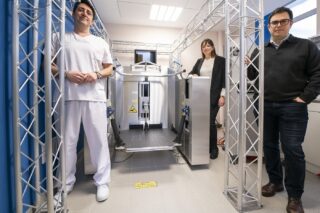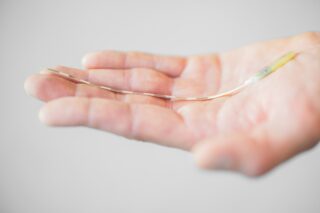Disaster medicine has grown in importance as terrorism, humanitarian aid and climate disasters have proliferated around the world. Efforts are underway to strengthen disaster response to save more lives and encourage countries to improve infrastructure for emergency response. MedicalExpo e-mag spoke with Francesco Della Corte, Professor in Anesthesia, Critical Care and Critical Emergency Medicine at the University of Piedmont, Italy. He’s the founder of the European Master in Disaster Medicine.
ME e-mag: When was the European Master in Disaster Medicine program launched and what are its objectives?
Della Corte: The Master of Science in Disaster Medicine was launched in 2000-2001. So far, we have trained about 400 people. Students come from 75 nations, spread over the five continents. Responding well to a disaster is one of the most challenging things in medicine. There has been a marked expansion in using disaster medicine to provide humanitarian aid.
Having specific knowledge, planning and organizing a health system, adapting to unique situations and providing skilled professional care in an often austere environment pose challenges. Our overall goals are to give students a clear picture of current concepts and developments in the medical management of disasters so that health workers become high-level disaster medicine professionals, capable of working as academics and/or staff or field workers for governmental and non-governmental or international organizations. We also hope that students develop skills to contribute to the global development of disaster medicine as an academic discipline through collaboration with program universities and institutions, the students and alumni.
ME e-mag: In the past year, we have heard about terrorism, climate disasters, and humanitarian problems. What is the most striking change in the field of disaster medicine?
Della Corte: There has been a marked expansion in using disaster medicine to provide humanitarian aid. Disaster medicine programs look at the big picture. They aim to give students skills in planning, hospital incident command, information management, safety, personal protective equipment and decontamination, medical management, essential resources, psychological support and ethics.
ME e-mag: Only doctors and nurses are eligible for this program. What will graduates be qualified to do?
Della Corte: Graduates should be able to work in one or more of five capacities: 1) define the main academic, legal, and ethical principles associated with disaster medicine; 2) assess the impact of disasters on the health system, including risk assessment and development of primary prevention programs; 3) manage medical response in diverse disaster situations; 4) organize local education and training in disaster medicine; 5) develop research projects in disaster medicine.











